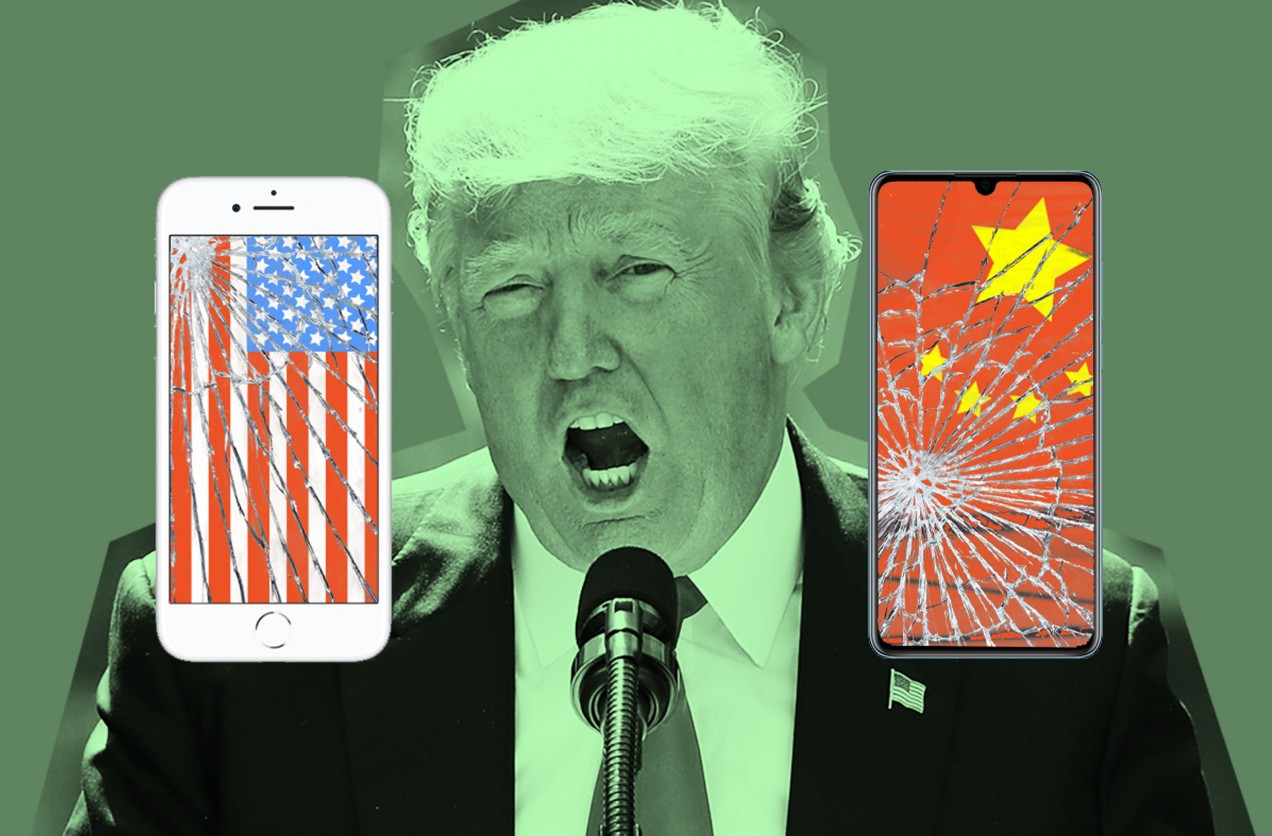by Will Knight
One effect of Donald Trump’s sanctions on China’s tech giant Huawei seems to be a growing nationalistic sentiment among some Chinese consumers: sales of iPhones have fallen in recent months, while Huawei products have seen an uptick. It isn’t hard to find patriotic slogans backing the embattled company on social-media platforms such as Weibo.
It’s not surprising, but it is part of a worrying trend. It’s the latest sign of how America’s foreign policy, and tensions with China especially, are threatening to carve up the tech world along national boundaries.
“We are already seeing the balkanization of technology in many domains,” says Zvika Krieger, head of technology policy at the World Economic Forum. “If this trend continues, companies will have to create different products for different markets, leading to even further divergence.”
Incompatible products and platforms that replicate the same function would take things backwards, Krieger says: “This will also have a chilling effect on innovation, where digital companies can no longer assume the ability to scale globally with the same ease and speed that has defined the past decade of unprecedented innovation.”
Speaking to MIT Technology Review in Boston this week, Huawei executives claimed the company would ride out the storm. But they also argued that whatever happens to Huawei, Trump’s actions risk creating an increasingly divided tech world, most immediately by eroding trust in an electronics supply chain that spans the globe.
“This is the real danger,” said Vincent Peng, a senior vice president and the company’s head of corporate communications. “Different standards, different ecosystems, different technology—it will make the whole world a mess. From the short term you are damaging Huawei, but longer term you are damaging the American supply chain system and the American industry.”
Last week, the Trump administration ramped up pressure by banning US companies from using foreign-made equipment that could “pose a threat to national security” and adding Huawei to an “Entity List” of companies subject to export restrictions, thereby blocking US firms from supplying technology to Huawei without obtaining special permission. The restriction has cut off a vital supply of advanced chips and other components.
Soon after, the US companies Intel, Qualcomm, Xilinx, and Broadcom stopped working with Huawei. More damaging, ARM, a UK-based business that licenses chip designs for mobile devices and servers, ordered staff to cease working with Huawei. And then Google announced that it would not make its Android mobile operating system and apps available on the company’s devices.
Such moves are potentially devastating for Huawei, even though the Trump administration granted a 90-day reprieve. While the company claims to have stockpiled chips and developed its own operating system just in case of such a scenario, most experts doubt that it has the needed technology. China has struggled for decades to develop a chip industry capable of providing the kind of advanced components that smartphones and 5G equipment rely on.
However, Huawei has invested heavily in R&D over the past decade and is arguably the world leader in 5G technology. The company is also building up strong capabilities in other areas, such as artificial intelligence.
The justification for hobbling Huawei is the potential security risks posed by the company’s equipment, especially in forthcoming 5G networks, because of its possible ties to the Chinese government.
Although no evidence of deliberate back doors has been produced, US officials argue that China’s government could simply compel the company to introduce some. Such suspicions, whipped up to a fever pitch in recent months, are unlikely to dissipate even if the Trump administration changes course.
The US government has recently broadened its focus. This week the government said it may also forbid US companies from supplying technology to Hikvision Digital Technology and rival Zhejiang Dahua. The justification is China’s use of such technology for the surveillance of Uighurs, a Muslim minority, in the country’s west.
Trump’s strategy seems simultaneously designed to force a trade deal and limit progress in China’s tech industry. But the overall approach betrays a broader mistrust of China and its path. The administration has made it much more difficult for Chinese students to study advanced technologies at top US universities, for instance, by making the visa process more arduous and protracted.
Preston McAfee, who until recently was the chief economist at Microsoft, says this is especially bad for innovation. “Trade frictions and immigration reductions reduce the flow of capital and labor across borders, reducing efficiency,” he says.
The impact is worse for startups that might challenge the status quo, McAfee argues, because multinationals have greater flexibility to move production and R&D around the world. “Trade and immigration impediments tend to lock in dominance, or at least reduce the likelihood of important challenges by entrants,” he says.
Given the challenges Huawei faces and the nationalistic mood now growing within China, it is perhaps a little ironic that Ren Zhengfei, the company’s CEO and founder, claims to be a fan of a US rival.
“My children prefer Apple products over Huawei’s,” Ren said during a TV interview that aired on Chinese television earlier this week. “We cannot simply say that one is patriotic if they use Huawei products and they are not if they don’t use Huawei products. Huawei’s products are ultimately commodities. People use them if they like them. Politics should be left out of it.”
That is clearly wishful thinking.

No comments:
Post a Comment